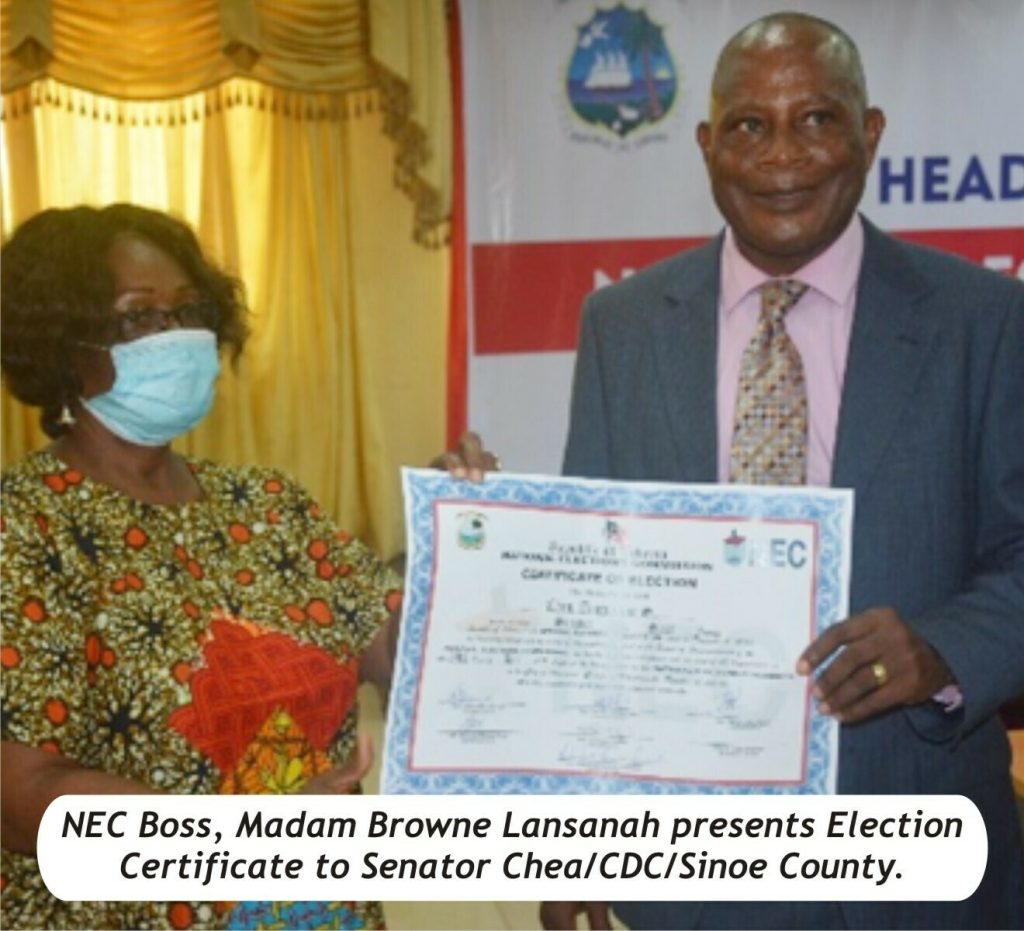The political landscape of Liberia witnessed a contentious debate sparked by the protracted leadership crisis within the House of Representatives. Senator Augustine Chea of Sinoe County, also the Senate’s Judicial Chair, publicly criticized the Inter-Religious Council of Liberia for issuing a statement perceived as belated and biased concerning the House’s leadership impasse. This impasse stemmed from a dispute over the speakership, with rival factions vying for control and challenging the legitimacy of each other’s claims to the position.
Senator Chea’s critique centered on the timing and content of the Inter-Religious Council’s statement. He questioned the Council’s silence throughout the six-month crisis, only to intervene on the heels of legal arguments surrounding a Bill of Information and prior to the Supreme Court’s ruling. This perceived eleventh-hour intervention raised suspicions of ulterior motives and a potential alignment with certain factions within the House. The Senator further invoked the legacies of prominent deceased and retired religious leaders, implying that their leadership would have handled the situation differently. He linked the current Council’s actions to what he termed the unjustified suspension of Rev. Dr. Samuel B. Reeves as President of the Liberia Council of Churches, suggesting internal discord within the religious body.
The controversy deepened as both the Liberia Council of Churches (LCC) and the National Muslim Council of Liberia categorically denied any association with the circulating statement attributed to them. Rev. Christopher Toe, Secretary General of the LCC, denounced the statement as fabricated, asserting that neither the LCC nor its leadership had participated in its creation or release. This denial exposed a potential attempt to manipulate public opinion by using the credibility of religious institutions to endorse a particular stance in the House leadership struggle.
The disputed statement, purportedly a joint declaration from the LCC, the National Muslim Council, and the Inter-Religious Council of Liberia, claimed to represent their collective efforts in mediating the House of Representatives’ leadership conflict. It called for unity and cooperation, urging the minority bloc to accept Hon. Richard N. Koon’s leadership and collaborate with him for inclusivity. Furthermore, it expressed gratitude to Hon. J. Fonati Koffa for his prior service as Speaker and commended Representative Musa Bility’s advocacy for the rule of law. The statement advocated for the resumption of legislative sessions and the amendment of constitutional and procedural loopholes that contributed to the crisis. It also recommended lifting lawmaker suspensions and ensuring legitimate salary payments, while suggesting maintaining Hon. Yekeh Y. Kolubah’s suspension.
Senator Chea challenged the statement’s assertion that presidential recognition legitimizes the authority of an elected official, especially in the context of an elective office like the Speaker of the House. He argued that legitimacy derives from adherence to constitutional mandates, not from external recognition or the passage of legislation under disputed leadership. The Senator questioned the legal basis of Hon. Koon’s speakership and the removal of Hon. Koffa, emphasizing that constitutional requirements for electing and removing a Speaker must be followed. He outlined these requirements, citing the constitutional provision for a six-year term and removal by a two-thirds majority vote of the House.
The Senator’s critique highlighted the complexities of the political and legal battle within the House of Representatives. His arguments centered on the need for adherence to constitutional processes, questioning the validity of arguments based solely on presidential recognition or legislative activity under contested leadership. He accused the authors of the disputed statement, whoever they may be, of aligning with the narrative of the “Majority Bloc” and some senators by attempting to legitimize Hon. Koon’s speakership through extra-constitutional means.
The controversy surrounding the disputed statement and Senator Chea’s response underscored the delicate interplay between political maneuvering, legal arguments, and the role of religious institutions in navigating national crises. The Inter-Religious Council’s denial of authorship further complicated the situation, raising questions about the motivations behind the fabricated statement and the potential for misuse of religious authority in political disputes. This incident highlighted the importance of verifying information and the need for transparency and accountability in political discourse, especially when involving respected institutions like religious bodies. The ongoing leadership struggle within the House of Representatives and the surrounding public debate revealed underlying tensions within Liberia’s political system and the challenges in upholding constitutional principles in the midst of power struggles.














